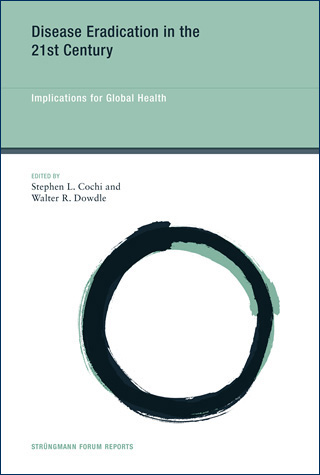- Home
- Publications
- Intrusive Thinking
- Deliberate Ignorance
- Youth Mental Health
- Neocortex
- Interactive Task Learning
- Agrobiodiversity
- Emergent Brain Dynamics
- Rethinking Environmentalism
- Cultural Nature of Attachment
- Investors and Exploiters in Ecology and Economics
- Computational Psychiatry
- Complexity and Evolution
- Pragmatic Turn in Cognitive Science
- Translational Neuroscience
- Trace Metals and Infectious Diseases
- Pathways to Peace
- Rethinking Global Land Use
- Schizophrenia
- Cultural Evolution
- Language, Music, and the Brain
- Evolution and The Mechanisms Of Decision Making
- Cognitive Search
- Animal Thinking
- Disease Eradication in the 21st Century
- Envisioning Healthcare 2020
- Dynamic Coordination
- Linkages of Sustainability
- Origin of Syntax
- Perturbed Clouds
- Better Than Conscious?
- Our Board
- Contact
- Impressum / Imprint
- Privacy Notice
- Publications
- Intrusive Thinking
- Deliberate Ignorance
- Youth Mental Health
- The Neocortex
- Interactive Task Learning
- Emergent Brain Dynamics
- Agrobiodiversity
- Rethinking Environmentalism
- Cultural Nature of Attachment
- Investors and Exploiters in Ecology and Economics
- Computational Psychiatry
- Complexity and Evolution
- Pragmatic Turn in Cognitive Science
- Translational Neuroscience
- Trace Metals and Infectious Diseases
- Pathways to Peace
- Rethinking Global Land Use
- Schizophrenia
- Cultural Evolution
- Language, Music, and the Brain
- Evolution And The Mechanisms Of Decision Making
- Cognitive Search
- Animal Thinking
- Disease Eradication in the 21st Century
- Better Doctors, Better Patients, Better Decisions
- Dynamic Coordination in the Brain
- Linkages of Sustainability
- Biological Foundations and Origin of Syntax
- Clouds in the Perturbed Climate System
- Better Than Conscious?
MIT Press »
Disease Eradication in the 21st Century
Implications for Global Health
Edited by Stephen L. Cochi and Walter R. Dowdle
Disease eradication represents the ultimate in global equity and the definitive outcome of good public health practice. Thirty years ago, the elimination of smallpox defined disease eradication as a monumental global achievement with lasting benefits for society. Today, the global commitment to eradicate polio and guinea worm and heightened interest in the potential eradication of other infectious diseases, including measles/rubella, lymphatic filariasis, onchocerciasis, and malaria, dominate public health concerns. But what does it take to eradicate a disease? This book takes a fresh look at the evolving concepts of disease eradication, influenced by scientific advances, field experience, societal issues, and economic realities. A diverse group of experts from around the world, representing a range of disciplines, examines the biological, social, political, and economic complexities of eradicating a disease.
The book details lessons learned from the initiatives against polio, measles/rubella, and onchocerciasis. Further chapters examine ethical issues, the investment case, governance models, organizational and institutional arrangements, political and social factors, feasibility of eradication goals, priority setting, and the integration of disease eradication programs with existing health systems.
About the Editors
Stephen L. Cochi is Senior Advisor to the Director, Global Immunization Division, at the Centers for Disease Control and Prevention.
Walter R. Dowdle is Director of the Polio Antivirals Initiative at the Task Force for Global Health in Decatur, Georgia.
Download the promotional flyer here
ISBN-10: 0-262-01673-7
ISBN-13: 978-0-262-01673-5
Photographie: U. Dettmar
Lektorat: BerlinScienceWorks
Additional support is gratefully acknowledged from Deutsche Forschungsgemeinschaft (German Science Foundation).

"What are the distinct benefits of disease eradication programs? An investment of this generation benefits all future generations providing ultimate benefit cost ratios. Disease eradication programs, at their best, explore and promote cutting edge science and technology, improve delivery approaches, and develop innovative global political liaisons. They bring out the best in global health work. The implications, considerations, progress and possibilities are presented in this Strungmann Forum Report."
—William Foege
Epidemiologist and author of House on Fire: The Fight to Eradicate Smallpox
"This excellent and detailed study on the applicability of eradication of disease in the global health field comes at a time when the world is about to eradicate polio. This in depth look at the effects on global health is timely and the Strüngmann Forum is to be congratulated in underwriting such an event. These findings will be of great interest to many involved in global health in all its facets, not solely disease eradication."
—Kalyan Banerjee
2011-12 President,
Rotary International
"This distinguished panel of authors from many disciplines and professions and worldwide experience has given us a robust and holistic view of what it really takes to eliminate and eradicate infectious and parasitic diseases at the regional and global levels, respectively, and it makes a sound and compelling case for investing in these efforts, which are critically important to improve global health and bring an end to unnecessary suffering, disabilities, and death."
—Mirta Roses Periago
Director, Pan American Health Organization
